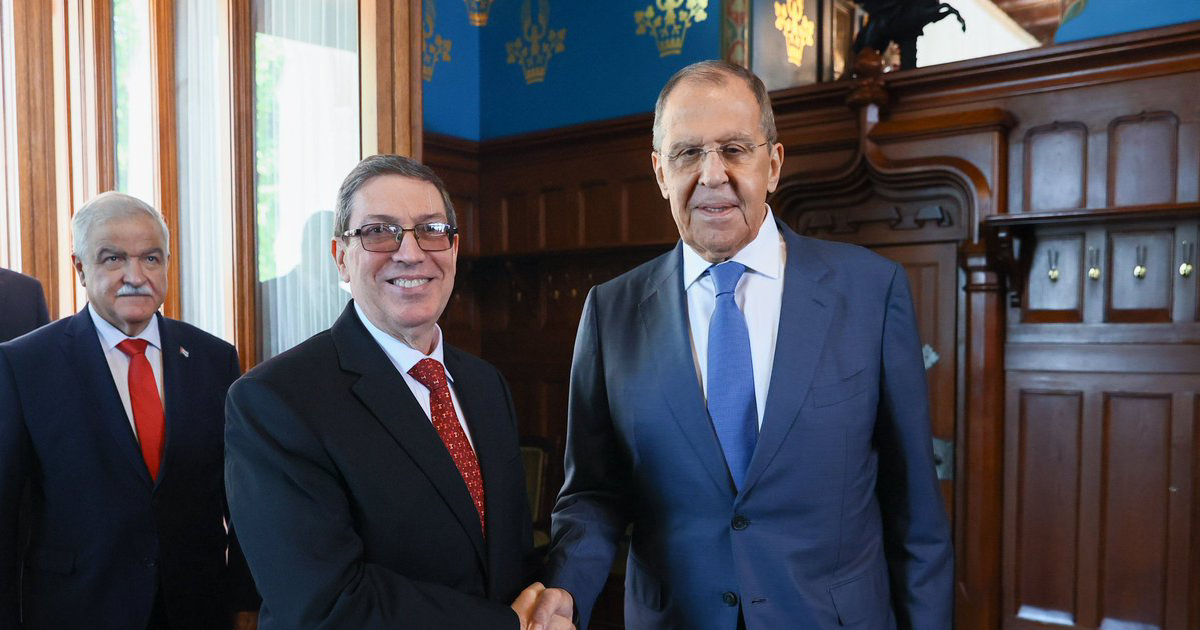More than a decade after the establishment of the political and economic forum known as BRICS, Cuba has expressed its interest in joining this alliance. The announcement was made during the official visit of Foreign Minister Bruno Rodríguez Parrilla to Russia.
During his address at the group's meeting held in the city of Nizhni Nóvgorod, Rodríguez conveyed the regime's firm determination to "explore and favor all possible avenues" to strengthen relations with the member countries, aiming for mutual benefits. This objective, reiterated on social media platform X, precedes the idea of participating in projects like the Belt and Road Initiative, while also condemning coercive measures against Russia and NATO's actions to exacerbate the conflict with Ukraine.
BRICS and a New Global Order
Rodríguez emphasized the need for a "new civilized coexistence where solidarity, cooperation, and integration among states prevail," highlighting that the BRICS group "can significantly contribute to this historic demand of the South, especially on the path towards the necessary reform of the current international financial system."
The Foreign Minister underscored the importance of the forum's contribution to addressing the current global food crisis, with its promotion of "agricultural development and food production, whose practices and experiences serve as valid references for other nations." He also pointed out the role of renewable energy projects, which are crucial for the region's nations.
Rodríguez praised the "benefits" of the New Development Bank of BRICS, which provides indigenous financial support and strengthens the group's actions, representing 45% of the world's population and a third of the global GDP.
"The BRICS initiative to launch a broad-based foreign currency reserve mechanism, ensuring certainty and stability for the South, as well as establishing mutual credit lines in local currencies, is a significant contribution to forming a new and inclusive international financial architecture," the speech published on the official website of the Ministry of Foreign Affairs of Cuba states.
"From this platform, I would like to reiterate Cuba's willingness to share its modest experiences and results in the fields of the medical industry, pharmaceuticals, bio-pharmaceuticals, health, education, science, among other sectors, for the benefit of our peoples," Rodríguez expressed.
As part of his agenda, Rodríguez met with his Russian counterpart Serguei Lavrov to assess the state of the "excellent relations" between the two countries and the strengthening achieved in economic and trade ties amid the implementation of projects in various sectors.
The Cuban Foreign Minister arrived in Russia from China, where Foreign Minister Wang Yi reaffirmed "firm support" for the regime and expressed interest in expanding cooperation areas and intensifying multilateral collaboration amid the economic crisis facing the island.
BRICS, formed in 2010, is a political and economic association, group, and forum of emerging countries initially composed of Brazil, Russia, India, China, and South Africa. The name of the formation corresponds to the initials of its members. Since January 2024, Egypt, Iran, United Arab Emirates, Saudi Arabia, and Ethiopia have joined.
Key Questions About Cuba's Interest in Joining BRICS
Explore the critical aspects and implications of Cuba's expressed interest in joining the BRICS group, a major political and economic forum for emerging countries. Here are some frequently asked questions and their answers:
What is the significance of Cuba wanting to join BRICS?
Cuba's interest in joining BRICS signifies its desire to strengthen economic and political ties with emerging economies, seeking mutual benefits and support amid the island's ongoing economic crisis.
How could BRICS benefit from Cuba's membership?
BRICS could benefit from Cuba's expertise in sectors like the medical industry, pharmaceuticals, bio-pharmaceuticals, health, education, and science, contributing to diverse collaborative projects.
What are the potential challenges for Cuba joining BRICS?
Potential challenges include aligning with the diverse economic and political interests of BRICS member countries and overcoming existing international sanctions and economic constraints.
What role does Russia play in Cuba's bid to join BRICS?
Russia plays a significant role as a key ally and supporter of Cuba, fostering strong bilateral relations and potentially advocating for Cuba's inclusion in BRICS during diplomatic engagements.
